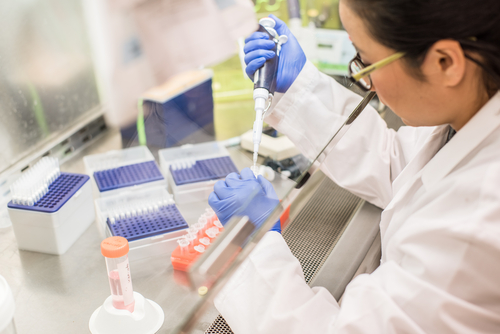ASF, Partners Award $100,000 Each to Teams in Florida, Cyprus Seeking Potential Treatments for Alport Syndrome

Researchers at Florida’s University of Miami (UM) and the University of Cyprus in Nicosia have received $100,000 each to continue research on Alport syndrome. Both studies aim not only to shed light into the underlying mechanism of this disease, but also to help identify potential cures.
The funding program is a collaboration among the Alport Syndrome Foundation (ASF), The Kidney Foundation of Canada and the Pedersen family, the primary funder of Alport syndrome research in Canada.
“Our vision is to conquer Alport syndrome by preventing kidney failure and hearing loss in all patients,” ASF Board President Sharon Lagas said in a press release. “We are accomplishing this by working with our funding partners and collaborating with the international community to build a research agenda that will lead to novel treatments for Alport syndrome patients.”
The first project, led by UM’s Dr. Alessia Fornoni, is “Targeting podocyte lipotoxicity in Alport Syndrome.” The 15-month study hopes to improve knowledge of kidney injury caused by the accumulation of fat molecules in cells called podocytes, which are essential for normal kidney function. Fornoni’s team also wants to test the FDA-approved cholesterol-lowering drug ezetimibe — marketed under the names Ezetrol and Zetia — as a potential inhibitor of kidney injury pathway in order to prevent Alport progression.
The second project, by Dr. Constantinos Deltas in Cyprus, is “Repurposing of FDA approved chemical chaperones to the rescue of a mouse model of Alport syndrome.” This study will analyze the therapeutic potential of two medicines, PBA and TUDCA, in animal models of Alport syndrome.
These compounds might help reverse the effects caused by genetic variants that lead to type IV collagen protein abnormal folding, and consequently to Alport syndrome. PBA and TUDCA are expected to help correctly place the abnormal collagen protein and potentially improve long-term kidney outcome in this illness.
ASF and its partners have given more than $2 million to fund studies at various institutions including Washington University; Australia’s University of Melbourne and Monash University, and Germany’s University Medical Centre Göttingen. The program has also supported the University of Minnesota’s ASTOR patient registry.
“We are pleased with the response and quality of research which the program has attracted and the progress which is being made in finding new drugs to further delay the progression of this disease,” said Harold Pedersen on behalf of the Pedersen family. “Previous projects have led to one drug in second-year clinical studies and another project in early-stage testing showing encouragement.”
Added Elisabeth Fowler, national director of research at the Kidney Foundation of Canada: “We are encouraged by the quality of the research projects received through this research funding opportunity. We hope that the results of these projects will generate new knowledge that will lead to better treatments and an improved quality of life for people living with Alport syndrome.”







Leave a comment
Fill in the required fields to post. Your email address will not be published.